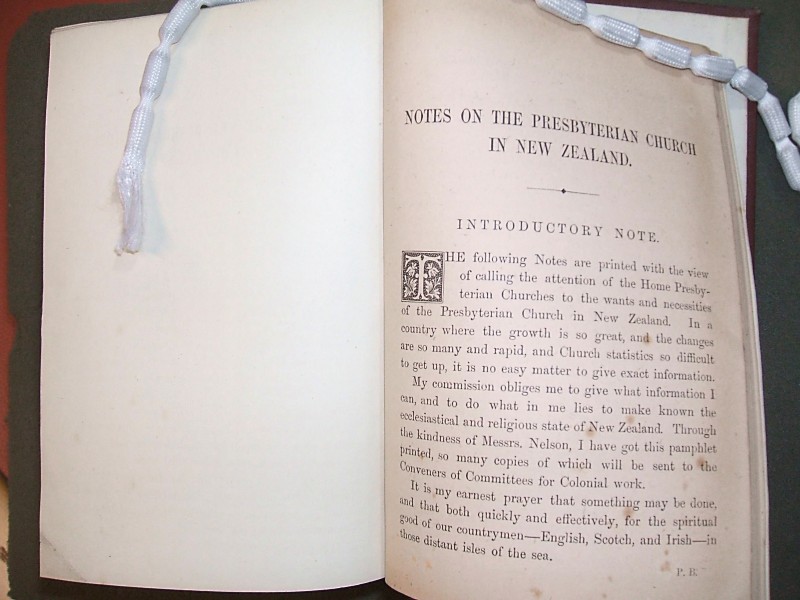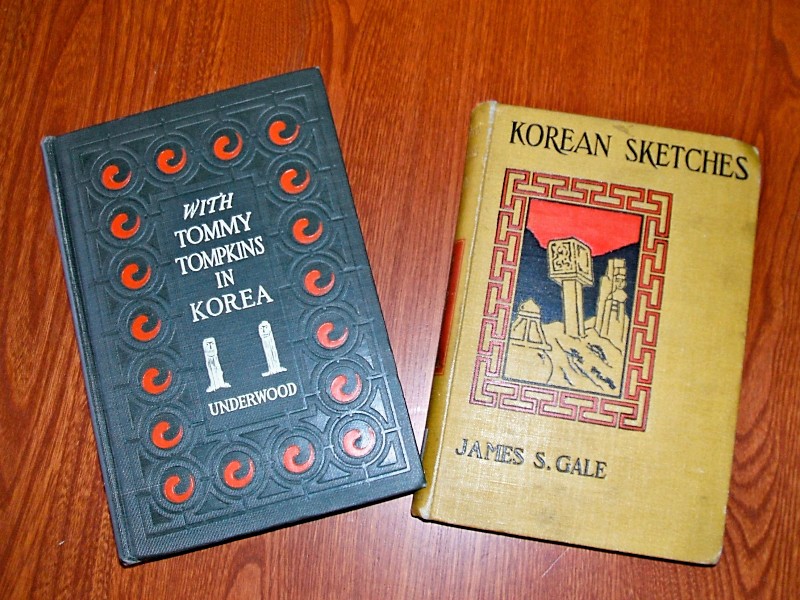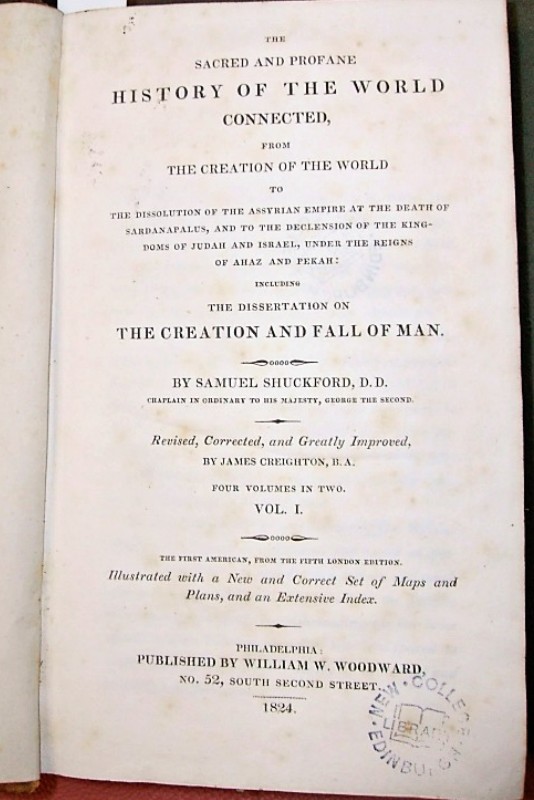I have been making my way through the manuscripts collection in an effort to identify material, see what conservation needs there are and generally acquaint myself with the collections. This week I have been struck by the quantity of material from the 1600s, which has, of course, come about as a result of the Covenanters. While a good proportion of the manuscripts are sermons there are a few which are copies of letters or the last words of Presbyterian martyrs.
My heart was in my mouth when I opened one such volume (ref. MSS NOT) and found that in several places pages had been cut out. As I went through the notebook in search of the name of the person who had carefully copied down sermons by Laurence Charteris and James Good, Latin tracts and proclamations, my heart resumed its usual position when, quite unusually, I found an explanation for the missing pages:
“Nota: I lent this book to Mr Samuel Nairne when he was passing his tryalls for the Ministrie which he keept four years & some more; & when removed from the parish of Moonzie and went to Arroll, he tooke the booke with him; And all the thankes I got was the cutting out of thir leaves as is to be seen in the following part hereof Which was neither done lyke a Gentleman nor a Minister. Whereupon I ame resolved here after to take heed to whom I lend the use of my booke, especially of a manuscript.”
While the notebook’s author is as yet unknown, the reference to Samuel Nairne dates it to around 1690 and one can assume that the author was living in the parish of Moonzie or nearby.
The inside cover of the notebook tells us that it was later owned by a James MacGregor. However, at another point in the notebook, where Samuel Nairne had been busy with a blade, James wrote the following:
“Fhuair Seumas McGriogair an leabhar so am Peairt am Bliadhna ar Tighearna 1778 ar son 2sc[illin]”
Translation: “James MacGregor bought this book in Perth in the Year of our Lord 1778 for 2 pence.”
Not only does this give us more about the provenance of the book but also shows that James MacGregor was literate in Gaelic.
Missing pages can be frustrating and sometimes even heartbreaking but for our unknown Fife scribe their absence was clearly just plain annoying: annoying enough to write about it.
Kirsty M Stewart, New College Collection Curator
Information on Samuel Nairn from Fasti Ecclesiae Scoticanae , vol 5, p 169: SAMUEL NAIRNE, M.A. ; ord. before 22nd July 1690 ; trans, to Errol 12th Jan. 1692.
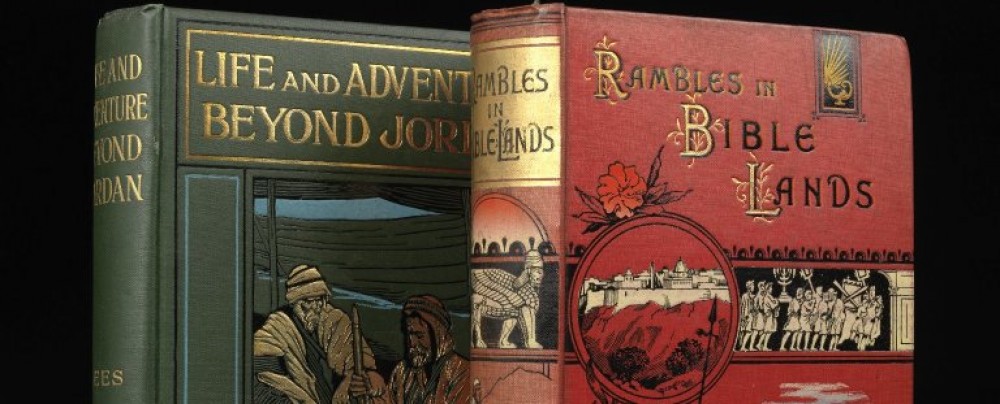
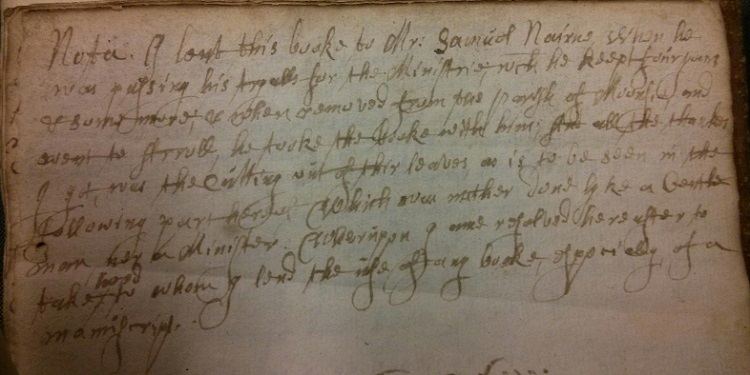
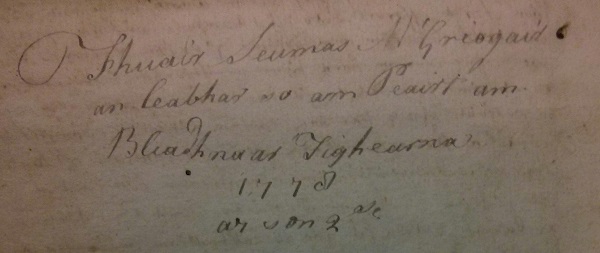
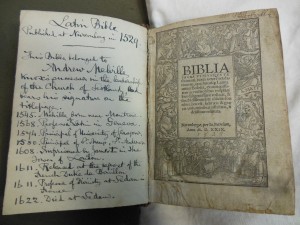
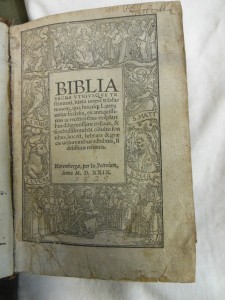
![By Flemish school (Unknown) [Public domain], via Wikimedia Commons. On permanent display in Espace Ami Lullin of the Bibliothèque de Genève.](http://libraryblogs.is.ed.ac.uk/newcollegelibrarian/files/2013/07/488px-john_calvin_-_young.jpg)
